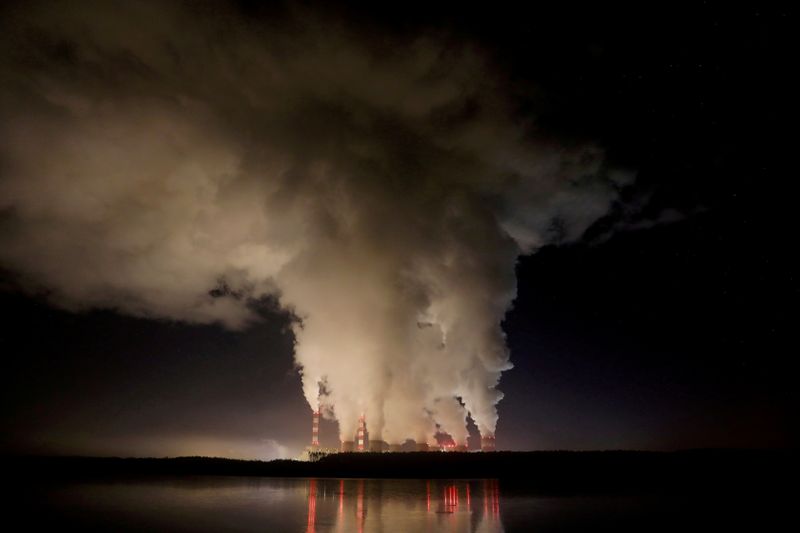BRUSSELS (Reuters) - The European Union is planning to toughen its carbon market to cut emissions faster and put a price on pollution in new sectors, Bloomberg News reported on Sunday.
The EU's emissions trading system (ETS) is the bloc's central climate policy, forcing power plants, factories and airlines running European flights to buy permits when they emit CO2.
The European Commission will next month propose a revamp of the system as part of a package of policies designed to meet a more ambitious climate change target.
Citing a draft of the ETS proposal, Bloomberg reported that the supply of CO2 permits in the ETS will face a one-off cut.
The number of permits entering the ETS each year would also decrease at a faster rate, although this rate was not specified, the report said.
A Commission spokesperson declined to comment on the draft proposal, which could change before it is published.
The proposal would strengthen the ETS "market stability reserve", a mechanism designed to avoid a build-up of excess permits that could depress EU carbon prices.
When the ETS contains more than 1.096 billion spare permits, the reserve would absorb 24% per year until 2030, the report said. When there are 833 million to 1.096 billion permits in circulation, the reserve would absorb enough permits to bring that down to 833 million.
EU member states and the European Parliament must negotiate the final reforms, a process that could take roughly two years.
Free carbon permits would end for industries covered by the EU's planned carbon border levy - a move that could increase carbon costs for producers of steel, cement, aluminium and fertilisers.

The report confirmed plans to expand the ETS to include shipping, and create a new, separate ETS for transport and heating systems in buildings.
The Commission has said it will create a fund to support vulnerable households if the carbon pricing system raises fuel bills.